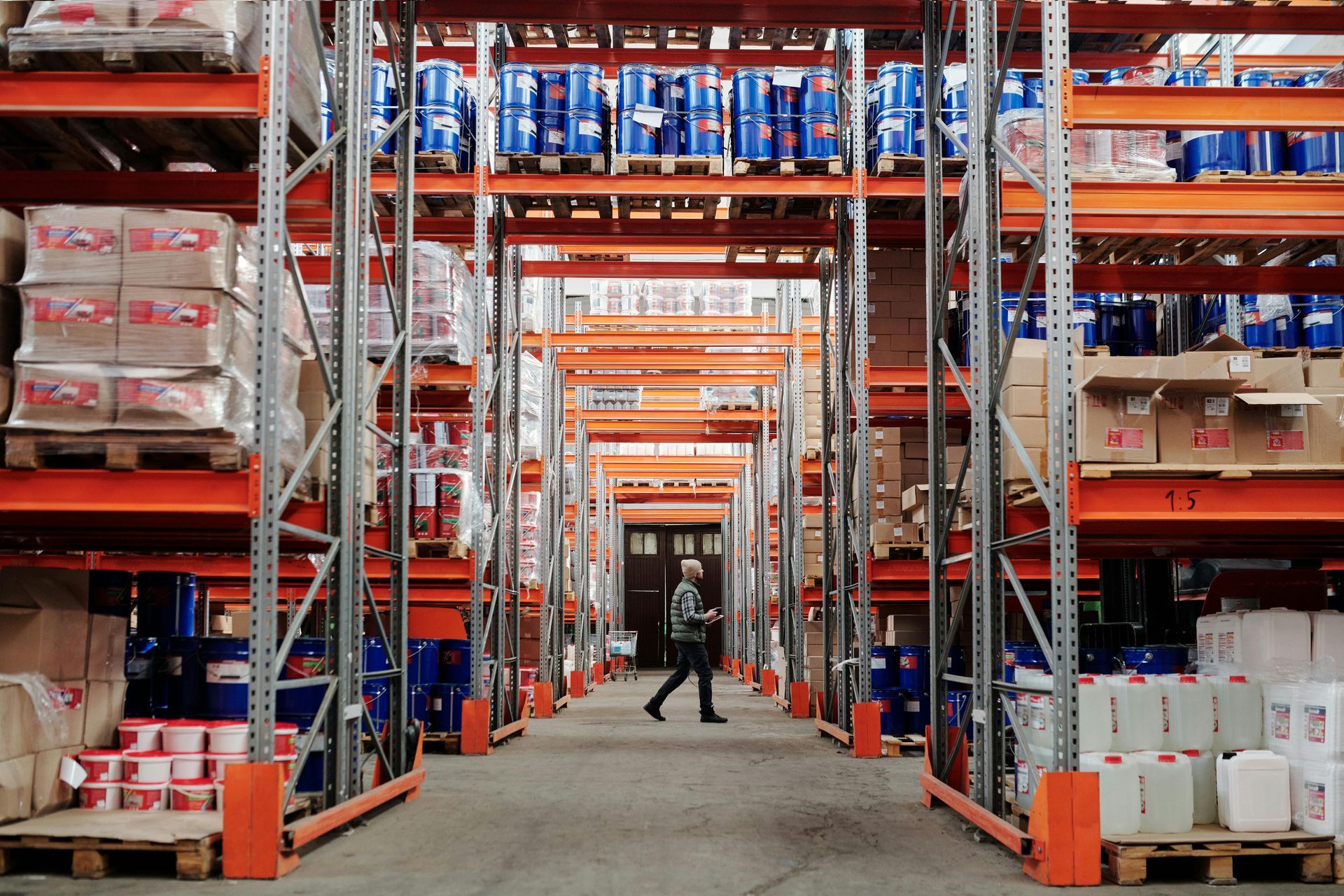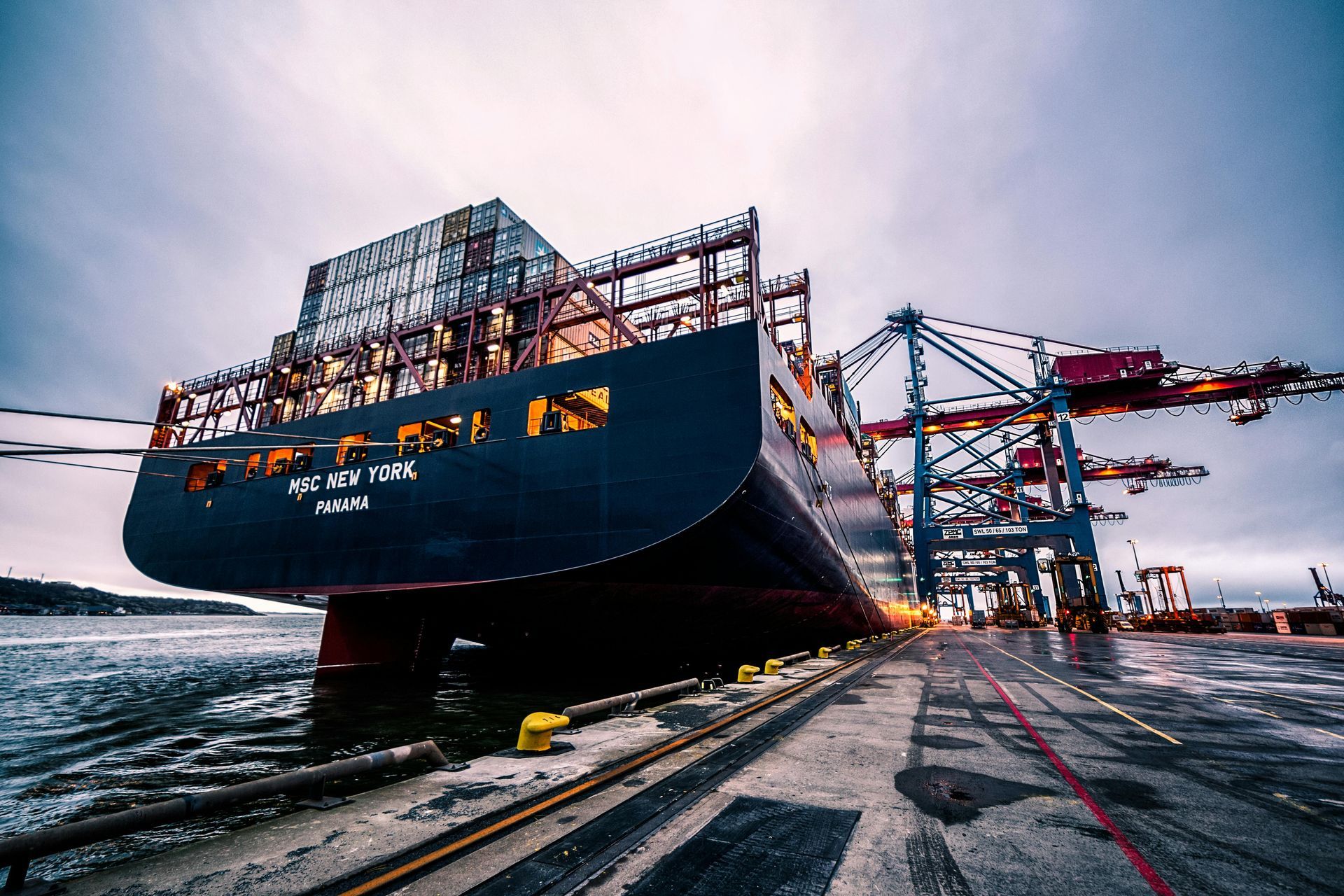Search the blog

Sustainability in Australian supply chains is more than just a talking point in 2025; it’s central to business strategy and recruitment. The push to “go green” is influencing not only how organisations operate, but also the qualities and skills they seek in logistics professionals. Impact on Hiring Trends Many companies are now prioritising candidates with expertise in decarbonisation strategies, circular economy design, and sustainable procurement to help meet emissions reduction targets and comply with evolving regulations. Roles in fleet management, warehousing, procurement, and logistics require increasing knowledge of energy-efficient technologies, emissions analytics, and compliance with green policies. There is growing demand for dedicated sustainability and ESG (Environmental, Social, and Governance) specialists who are responsible for developing and implementing green supply chain programs, tracking performance, and reporting results to stakeholders. Why Sustainability Now Matters in Logistics With transport responsible for nearly one-fifth of Australia’s emissions, logistics companies and retailers are under new scrutiny from both regulators and customers. Moving goods quickly is no longer enough; employers now want team members who can also deliver sustainable outcomes. Sustainability skills are also no longer “nice to have.” Logistics candidates who show a genuine record in green practices, emissions reduction, or eco-friendly innovation are prioritised in the hiring process. The New Must-Have Green Skills Employers are now looking for: Carbon tracking and ESG reporting skills, even at operational levels. Hands-on experience with green technology such as electric vehicles, route optimisation, and recyclable packaging. Supplier sustainability oversight and the ability to work within strict compliance standards. Change management and the confidence to drive projects—like transitioning suppliers to greener alternatives. Leadership and culture-building to embed sustainability into everyday operations. Looking Ahead As emissions standards tighten and industry expectations shift, green credentials will increasingly influence advancement in logistics and supply chain careers. If you’re seeking logistics specialists with green skills, or want advice on upskilling and recruitment in this fast-evolving market, reach out to me today on (02) 9659 4411 or michelle@alexanderappointments.com.au.

If you’ve ever applied for a job online and received a next-day response, or had an interview scheduled seamlessly, you’ve already experienced the presence of AI in recruitment. Technology today is placing more power in the hands of recruiters and candidates like never before, but it’s the human connection that still remains at the heart of truly successful hiring. How is AI influencing recruitment? I’ve seen firsthand how artificial intelligence can streamline processes. AI-powered systems quickly scan hundreds of CVs, identifying top matches for each position, and then surfaces the candidates with the right expertise in record time! Chatbots answer queries and schedule interviews at all hours, making the experience smoother for everyone involved. This speed doesn’t just help us move faster; it means we’re less likely to lose great talent to slower competitors. Our client’s benefit, our candidates benefit, and we’re able to focus our energies on building genuine relationships instead of just battling admin tasks. The power of tech-driven empathy Finding the right person, however, isn’t just about keywords and algorithms. Good recruiters understand the subtleties that don’t make it onto a résumé, that sparkle in a candidate’s eye, the heart behind their ambitions, or the cultural fit that can only come out in conversation. No matter how advanced, AI can’t replicate that human intuition. That’s why we treat technology as an assistant, not a replacement. We let AI handle the repetitive screening and admin tasks, but when it comes to interviews, guidance, and final decision-making, the human touch is essential. Personal follow-ups, open conversations, and mentoring remain central to how we approach the recruitment process. So how do we balance efficiency and relationship-building? We use AI-powered matching tools and predictive analytics to give our team more time for connecting with candidates and understanding our clients' needs. The result is a faster processes, less bias, and a better overall experience, without losing warmth and trust that only comes from human interaction. Candidates receive real-time updates, targeted job suggestions, and prompt support along the way resulting in better matches, stronger teams, and more sustainable placements that last. Looking Ahead Recruitment technology is here to stay, but the future will belong to organisations that blend digital efficiency with empathy, insight, and a genuine human connection. As the recruitment industry continues to innovate, the evidence is becoming clearer in that you don’t have to choose between smart technology and authentic relationships. In fact, this is where the best hires happen. Reach out to us if you’re interested in learning more about how AI technology can assist you in finding your next opportunity or hire.

Whether you’ve been working in the sector for years or are just thinking about making a move, you’ll know that supply chain jobs aren’t what they used to be. Opportunities out there are both exciting and more varied than ever before. So, what roles are in hot demand right now? The market is hungry for supply chain professionals who understand how to keep things moving, even when the road gets bumpy! Whilst job titles may not have changed in the last two or three decades, certainly the function and how we do the job has changed, mainly with an emphasis on systems and tools that enable us to do our jobs with more speed and accuracy. Here’s what employers are searching for: Supply Chain Planner/Analyst Companies are seeking planners who know their way around predictive analytics and Excel spreadsheets. These roles are right at the heart of strategy, and they’re central to keeping costs down and service levels high. Logistics Coordinator & Transport Manager With e-commerce booming and delivery expectations through the roof, there’s a real push for people who know logistics inside out. Think compliance, fleet management, and fast problem-solving skills. Warehouse Manager & Operations Staff Warehouses are becoming more high-tech every year. If you’re comfortable with automation (or willing to dive in), there’s a big demand for managers and operators who can juggle people, processes, and new tech, all at once. Procurement Specialist Procurement experts are absolutely in the spotlight this year, thanks to everything from global supply chain shifts to local sustainability pushes. If you’re a negotiator with an eye on ESG, there’s plenty of space for you to make an impact, especially in more senior roles. What does the current hiring activity look like for these roles? Online job ads for logistics, warehousing, and transport management remain steady across most major cities, with Permanent positions making a comeback and companies keen to lock in skilled staff for the long haul. This means more stability (and often, better incentives) than short-term contracts. What About Salaries? Most salary offers have nudged up by 3–5% this year, which is a sign that talent is valued, and employers want to keep good people happy. For more specific data on salaries, please reach out for a chat, as there are many variables, location of work, size of business, Industry or that of your clients, and their margins and volumes, and so on. What Does All This Mean for You? If you’re considering a change or just starting out, it’s absolutely worth learning the tech (automation, fleet software, analytics) and brushing up on your stakeholder engagement. These are the skills that recruiters and employers truly value. If any of these roles sound like a fit, or you’re currently working in the Industry and would like to chat about career development opportunities, please feel free to reach out for a confidential discussion.

Have you noticed your finance team working hard, yet not always aligning their efforts with the business’s short-term and long-term objectives? Hiring talented people isn’t enough. Effectively communicating business strategies and the bringing people along on the journey is often what’s missing. Strong managers ensure everyone is visible, actively collaborating, and contributing to innovation, rather than working in isolated silos. Many directors today are juggling more than just skill gaps and digital transformation. The real challenge arises when teams aren’t sharing information or working together. High-performing finance teams become true business partners by connecting, communicating, and participating in broader strategic decisions. Leaders who encourage a strong team culture, with open communication, routine check-ins, and a genuine sense of teamwork, see better morale, faster problem-solving, and increased creativity driving their organisations forward. Here’s something worth considering: Success isn’t a set-and-forget deal! Without ongoing efforts to boost collaboration and keep the team connected, even top performers can stall. The most effective leaders keep things moving by updating processes, embracing flexibility, and encouraging innovative ways of working, so their finance teams are ready for whatever comes their way. Maybe it’s time to rethink the question. Instead of just asking, “How do we hire smarter?” try asking, “How do we help our finance teams step out of the background and become a powerhouse for our business?” If these ideas resonate, perhaps now is a good time to reflect on your own team’s dynamics and see what’s possible. Taking small, intentional steps, whether reviewing processes, encouraging more open dialogue, or simply rethinking how roles interact can lead to lasting change. If you’re interested in exploring approaches or want to discuss real-world examples, I’d love to chat!

In 2025, Australian supply chains are at a crossroads. Operational complexity and geopolitical tension have hit like never before! As businesses grapple with ongoing disruptions driven by political unrest, trade disputes, cyber threats, and shifting alliances, understanding these geopolitical forces has become critical, not just for supply chain leaders but for anyone involved in recruitment and talent strategy in this sector. Here’s what I’m seeing through my work at Alexander Appointments, combined with the latest information on how geopolitical shifts are reshaping supply chains in Australia and globally, and what companies and candidates need to know to stay resilient and competitive. The New Geopolitical Reality Impacting Supply Chains Global supply chains today aren’t just logistical marvels optimised for cost and speed, they’ve become geopolitical flashpoints. Conflicts in Eastern Europe, tensions in the South China Sea, trade wars, sanctions, and state-sponsored cyberattacks increasingly disrupt the smooth flow of goods, cause unexpected price spikes, and challenge risk management models that worked only a few years ago. Examples: Political instability can stop manufacturing in key regions or block critical trade routes. Tariffs and sanctions can change sourcing options overnight, forcing urgent supplier diversification. Cyberattacks targeting ports, payment systems, or logistics software create new vulnerable points that were previously underestimated in supply chain design. These forces have transformed supply chains from simple networks of suppliers and transport into fragile, intertwined ecosystems, where a single geopolitical event in one region can filter through operations globally. What Australian Businesses Are Doing and Why Talent Matters Businesses in Australia and the Asia-Pacific region are responding to these challenges with a combination of strategic supply chain redesign, investment in technology, and a focus on people who can competently steer through uncertainty. Key initiatives I’ve observed Supplier diversification and nearshoring: To avoid over-reliance on politically risky regions, companies are shifting goods closer to home or spreading risk across multiple suppliers. Digital transformation: AI-driven forecasting, blockchain tracking, and cyber resilience measures are becoming non-negotiable in supply chain operations. Flexibility and agility: Firms are redesigning logistics routes and inventory strategies to quickly pivot in response to sanctions, tariffs, or sudden conflicts. These shifts highlight why, from a recruitment perspective, the demand for supply chain and logistics professionals who combine operational expertise with strategic foresight and technological know-how has never been stronger. What This Means for Supply Chain Professionals in Australia If you’re a candidate in supply chain or logistics, now is the time to improve skills that help businesses manage and prevent geopolitical risk: Risk management and scenario planning: Understanding how geopolitical events ripple through supply and logistics is critical. Being able to anticipate and model different outcomes sets top candidates apart. Tech proficiency: Fluency in digital tools supporting supply chain visibility, data analytics, and cybersecurity has become essential. Cross-cultural and geopolitical awareness: Appreciating how regional politics impact trade can help you better coordinate international operations and vendor relationships. Adaptability and problem-solving: In a world where disruption often comes suddenly, your ability to pivot and innovate quickly is invaluable. Hiring managers are looking for people who don’t just execute day-to-day logistics, but who bring a strategic mindset that aligns with this turbulent environment. Building Resilience Through People and Partnerships Geopolitical shifts aren’t going away—they’re amplifying global supply chain complexity and risk. The companies best equipped to thrive in this environment invest not just in technology or alternative suppliers, but in extraordinary talent that understands how to steer through instability and drive resilience. Navigating supply chain disruptions requires more than operational tweaks; it demands partnership, foresight, and exceptional people. Australian supply chains and the professionals behind them are rising to the challenge. Whether you’re seeking strategic talent or looking for your next opportunity, Alexander Appointments is here to help. Reach out to me for a confidential discussion about recruitment solutions or career opportunities in supply chain and logistics.

In Australia’s fast-paced corporate environment, having the right executive finance team isn’t just important, it’s fundamental to your business’s long-term health and growth. Over the years, I’ve had the privilege to work alongside visionary CFOs, Group Controllers, and senior finance leaders, and what consistently stands out is how the best teams blend technology with curiosity, resilience, and collaboration. Why High-Performing Executive Finance Teams Matter The world of finance is changing rapidly. They’re no longer confined to just reporting and compliance. Today’s finance leaders are helping shape strategy, drive innovation, and guide organisations through times of uncertainty. For Australian organisations, a high-performing finance team is your compass: ensuring you don’t just survive market volatility but truly thrive in it. So, What Sets Exceptional Finance Teams Apart? 1. Strategic, Tech-Savvy Leadership I’ve seen firsthand how the most successful teams are led by people who embrace technology, and not as an add-on, but as an enabler. Leaders who are comfortable with analytics, automation, and digital transformation are much better prepared to interpret shifts in the market and help their businesses grow with confidence. 2. Diverse Perspectives Power Innovation I’ve consistently found that teams perform best when their members bring varied professional backgrounds, global insights, and a spirit of inclusion. Whether it’s integrating commercial thinking from other industries or nurturing diverse teams that reflect Australia’s rich diversity of talent. 3. People Skills Technical expertise lays the foundation, but it’s qualities like empathy, clear communication, and agility that truly elevate finance leaders. In high-pressure moments, whether it’s steering through regulatory change or guiding a major transformation, human skills set the tone and keep teams moving forward together. 4. Building for the Long-Term Strong teams don’t just focus on today. Organisations that invest in mentoring, succession planning, and flexible roles ensure the next generation of leaders are ready to step up. A mix of internal talent development and targeted executive search keeps your finance function fresh, resilient, and future-focused. 5. ESG & Compliance Expertise for Tomorrow’s Challenges With expectations on sustainability and governance rising, top executive teams now need expertise in ESG reporting and compliance. Leaders who understand the regulations and the broader impact of finance decisions are invaluable in shaping lasting enterprise value. What I’ve Learned Working with Australia’s Leading Organisations The most successful finance teams don’t just materialise; they’re built thoughtfully, with a clear sense of company strategy, values, and culture. The magic happens when recruitment is approached as a partnership, assessing both technical and personal fit, onboarding with care, and planning for ongoing development. When businesses prioritise learning, celebrate innovation, and recruit with intention, real transformation follows.

In today’s Australian recruitment market, there’s one thing that really sets top agencies and employers apart - How they treat their candidates. Candidate experience isn’t just a nice-to-have; it’s essential. More than just filling roles quickly, it’s about building a reputation, attracting the right people, and helping set businesses up for long-term success. Why a Positive Candidate Experience is So Important Job seekers these days are well-informed, savvy, and expect clear, respectful communication throughout their job search. The way candidates are treated at every touchpoint, from initial application through to feedback, doesn’t just influence whether they’ll take a job. It shapes how they feel about the entire organisation and whether or not they will trust the overall process. When candidates have a positive experience, it pays off. Happy candidates spread the word, become loyal to a brand, and, even if they don’t get the role, could turn into a recruiter's biggest advocate or future client. On the other hand, an impersonal process can quickly turn talent away and lead to negative reviews, which is a risk that no one can afford in such a competitive market! What Matters Most to Candidates in 2025? Provide a Efficiency and Simplicity: People want quick, straightforward applications that are easy to complete on any device. Timely Updates: Regular communication and prompt feedback help candidates feel valued, even if the process is taking a bit longer. Transparency: Open conversations about salaries, career paths, and company culture set honest and realistic expectations. Respect: Every candidate wants to be heard and genuinely considered, regardless of the outcome. Personal Touch: Technology can help manage the process, but meaningful, authentic engagement is what candidates remember. Why Strong Leadership Makes All the Difference When recruitment leaders put candidate experience front and centre, it shows. It builds trust, strengthens brand perception, and sets the right tone for everyone involved. Agencies and employers who lead with empathy and honesty see: A stronger brand presence in the market. More accepted offers and better employee retention. Higher quality hires, thanks to more engaged candidates. Long-term gains like more referrals and candidates returning as clients in the future. How Recruitment Leaders Make It Happen. If you’re wondering how we bring all this to life. Here are some practical steps we take: Reviewing Process: Evaluate tech and workflows to ensure potential obstacles are removed by automating routine updates. User Friendly: Keeping the application process as user-friendly as possible. Communicate Regularly: Build honest feedback and regular check-ins into hiring timelines so candidates never feel left in the dark. Being Open: Sharing salary bands, the steps involved, and unique selling points up front. Transparency builds trust! Respect and Diversity: Making every candidate feel welcome and fairly considered, whatever the final decision. Continually Improving: Asking candidates for feedback after the process and, more importantly, act on what you learn to keep getting better. At its core, recruitment in 2025 is about people, not just jobs. Creating a fair and transparent experience for every candidate can set the groundwork for workplaces that attract, engage, and keep top talent. Putting people first at every stage isn’t just good leadership; it’s the key to long-term success for everyone involved.

If you’ve been in the sector as long as I have, you’ll know we are currently at a crossroads: warehouses are getting smarter, logistics are going green, and demand for tech-savvy talent is surging. But our greatest opportunity (and challenge) right now is attracting the next generation of Gen Z and Millennials into supply chain roles. Why Gen Z and Millennials Matter Let’s face it, the industry’s old playbook doesn’t cut it anymore. Younger professionals are entering the workforce with new priorities: they’re digitally fluent, socially conscious, and want more than just a job—they want impact and meaning. What’s Holding Them Back? Old-school image: People still think “supply chain” means clipboards and forklifts, when in reality it’s about data analytics, sustainability solutions, and creative problem-solving. Limited exposure: Unlike tech or finance, supply chain careers aren’t front-of-mind when students or grads plan their futures. Growth doubts: Myths persist that career advancement in logistics is slow, or that the work is repetitive (it isn’t!). What Are They Looking For? Purpose and Impact: Gen Z and Millennials want work that “means something.” If your company is moving towards carbon neutrality, championing ethical sourcing, or supporting communities, shout it from the rooftop. Tech-Forward Roles: The fastest-growing areas are in automation, digital supply chain management, and data analysis. Highlight the innovative technologies and platforms your team uses. Diversity & Inclusion: Younger talent expects inclusive environments where different voices and ideas are welcomed. Flexibility: Hybrid and remote options are increasingly important, even in operational roles. Flexible shifts or digital-first teams can set you apart. Learning & Progression: Transparent career paths, mentoring, and access to upskilling (think: online courses and cross-functional projects) are key. Practical Steps to Attract Gen Z and Millennials Modernise Your Messaging: Update your job ads and social media, ditch jargon for language about impact, growth, and innovation. Partner With Education: Collaborate with universities and TAFEs. Guest speaking and internship programs place your company front and centre. Highlight Technology and Sustainability: Feature automation, eco-friendly initiatives, and supply chain digitisation in your employer branding. Promote Career Development: Publicise real stories of young team members climbing the ranks or expanding skills across different functions. Partner with a recruitment firm that can assist in promoting your brand to their network: A specialised recruitment agency can broaden your organisation's reach well beyond traditional job postings. Real Experiences Make a Difference Recently, I spoke with a 25-year-old logistics coordinator who joined a Sydney-based 3PL after completing a supply chain internship. What hooked him? The chance to lead a process automation project in his first year, plus exposure to green supply chain initiatives. Stories like this one are powerful magnets for new talent! Final Thought... The future of supply chain is fast, flexible, and full of impact. To attract Gen Z and Millennials, organisations need to reframe their roles and workplace culture as places where they can innovate, create change, and build rewarding careers.

The Doors to Opportunity Business Support professionals are at the heart of every successful organisation. Whether you’re in a bustling Sydney CBD office, a fast-growth tech scaleup, or a major government department, your admin and business support staff are the ones weaving everything together, quietly, efficiently, and with unwavering dedication. In my career as a Senior Recruitment Consultant at Alexander Appointments, I’ve seen, time and again, how truly critical these roles are. And I think it’s time we shine a brighter spotlight on the impact, the challenges, and the extraordinary career opportunities there are in this space. The Business Support Landscape in 2025 The last couple of years have reshaped the way Australian businesses work. Hybrid models, digital tools, and new expectations for adaptability mean the best business support professionals are more than just great organisers, they’re also strategic business partners. Key Skills Leading the Charge Tech-Savvy Mindset: From advanced MS Office to CRM systems, the most in-demand professionals don’t just manage software, they leverage it to save time and streamline operations. Communication Pros: With teams often split between the office and home, clear communication is non-negotiable. It’s the admin and support staff who keep everyone connected. Resourcefulness & Agility: In rapidly shifting industries, those who can adapt, prioritise, and “do more with less” are worth their weight in gold! Emotional Intelligence: Great business support talent helps keep heads calmer under pressure and contributes to team wellbeing. What Employers Want Australian companies are currently facing skills shortages in business support. Here’s what hiring managers across various industries are telling me: Immediate impact: Employers want people who can “hit the ground running.” Industry experience and proactive learning are huge differentiators. Cultural Fit: Teams that work well together deliver better results. Companies are investing more effort in finding support professionals who share core values and fit the organisation’s unique vibe. Flexibility: With the workplace constantly evolving, being able to pivot, whether it’s changing software platforms or supporting hybrid rosters, is a must-have capability. Career Growth for Business Support Professionals Far from being a “stepping-stone,” business support has become a true career path in Australia. You’ll find talented professionals moving from admin assistant to office manager, then team leader, EA to senior executives, and even into operations management. Let’s be honest, the impact you make in a business support role really does matter. We’re living in a world where companies have the option to offshore these positions in the name of cost-cutting, so what you bring to the table needs to be clear, every single day. When business support teams go the extra mile, spotting roadblocks before they happen, making things run smoother, and proving you’re an essential part of the business, you’re not just securing your role; you’re making yourself indispensable. The more you put your stamp on your work, the harder it is for anyone, anywhere, to replicate the value, culture, and trust you bring. That’s the real magic! My advice... Invest in upskilling: Don’t wait for formal training, seek out new tech, volunteer for projects, and back yourself to learn on the job. Build your network: Every connection, from clients to colleagues, can open new doors. Know your worth: The job market for skilled business support staff is competitive. Don’t be afraid to negotiate for the salary and flexibility you deserve. Business support roles aren’t just about keeping the machine ticking; they’re about nurturing culture, driving improvement, and helping every member of the team shine. Here’s to the people who make it happen, quietly and brilliantly, every single day!


